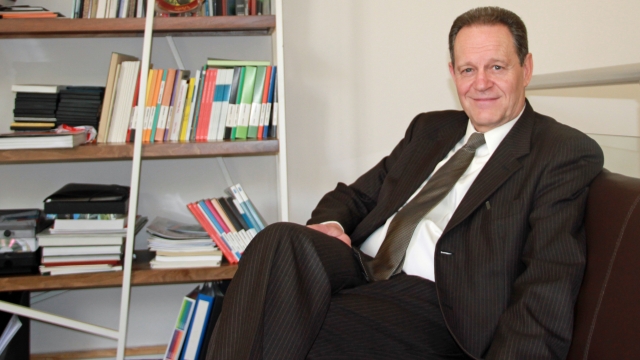Olivier Bürki: Cooperation Requires Continuity & Consistency to Deliver Results
INTERVIEW
The Swiss Agency for Development and Cooperation (SDC) has been active in Georgia for almost 30 years. After the earthquakes in Armenia in 1988, they started their engagement in the South Caucasus. After the disaster relief, SDC expanded its work throughout the region.
In 1999, SDC and the State Secretariat for Economic Affairs SECO opened a regional cooperation office in Tbilisi. GEORGIA TODAY met the Regional Director of Cooperation in Tbilisi, Olivier Bürki, to talk achievements and future plans.
What major developments has SDC achieved in Georgia in the last few years?
SDC works on the basis of four-year action plans. Over the last four years, we have worked in Georgia in three main directions, namely Economic development and employment, Governance and public services, and Human security and protection.
Thanks to a very conductive environment for our development activities, and with the support and engagement of all our Georgian partners and stakeholders, we have made a lot of progress.
In the agriculture sector, for instance, by connecting farmers and various private entities to foster agricultural production and combat poverty, more than 83,000 farmers have seen their incomes increase on average by 27%. With our support to Vocational Education and Training in Georgia, 4,700 students received tailored education in farming, 1,800 women among them.
With our humanitarian support, we have been able to work with vulnerable families and around 4,000 households benefited from repaired small community infrastructure such as kindergartens, schools or irrigation systems.
And we have also actively supported the decentralization reform process in Georgia, both on the legislative and operational sides, with the result that, for instance, 75 local self-governments are now better quipped and trained to perform their functions related to territorial administration and the planning and financing of local development.
Since the beginning of 2017, Swiss Cooperation Office for the South Caucasus has had a new strategy. Tell us about it
Cooperation activities require continuity and consistency to deliver results and, very importantly, to ensure the sustainability of those results. In this sense, our new Cooperation Strategy 2017-2020 largely builds on previous achievements. We shall remain solidly engaged in economic development, in particular in the agriculture sector, and we shall continue our support to democratic processes and decentralization. What is new is that we will no longer conduct humanitarian aid activities in the region. But here also we have accumulated a lot of experience, in hazard-mapping for instance, that we want to apply to cooperation activities in the environment sector. We also want to do more to support women's economic empowerment; and based on our engagement in agriculture in the region, we also want to explore opportunities to support enhanced cross-border trade.
Why did you stop the humanitarian aid?
Over the last 20 years, the Swiss Humanitarian Aid has implemented projects in almost all regions in the Caucasus, including in conflict areas. We have assisted internally displaced persons, refugees, returnees, natural disaster victims and various groups of socially vulnerable people. While challenges remain, much progress has taken place in the region. Humanitarian aid is a crisis emergency response mechanism, and with the prevailing crisis in the world today, we had to re-allocate resources. At the same time, we are concentrating our continued engagement on technical cooperation to support further social and economic development in the region.
What are the greatest challenges for SDC in Georgia?
More than 50% of the Georgian population lives in rural areas. The majority of them are small-scale farmers with around 1ha of land, who have limited access to information, finance and markets for their products. The challenge is hence to help them to benefit more from the overall developments in the country, and this is a key reason and priority for our substantial engagement in supporting agriculture sector development in Georgia. The country is also prone to a high number of natural hazards which represent a serious threat to the population, and a great constraint to economic and tourism development, notably in rural and mountainous areas. National and municipal capacities for integrated risk management need to be further developed to address this challenge, and building upon the experience gained with our humanitarian aid, we shall expand our support in this area.
Manuela Kosch












